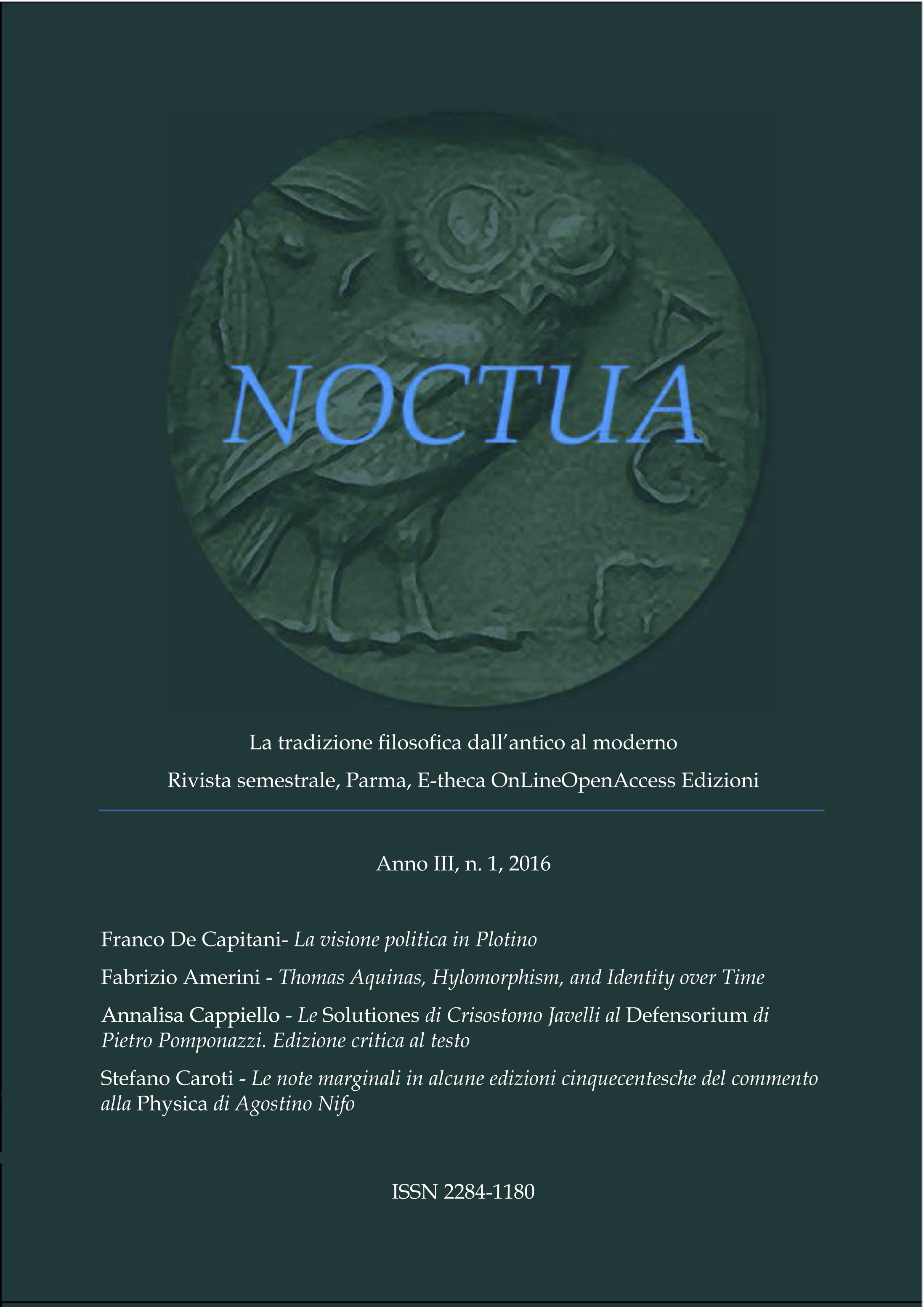Le Solutiones di Crisostomo Javelli al Defensorium di Pietro Pomponazzi. Edizione critica al testo latino
DOI:
https://doi.org/10.14640/NoctuaIII3Keywords:
Apostolici regiminis, Defensorium, Crisostomo Javelli, Pietro Pomponazzi, Solutiones rationum animi mortalitatemAbstract
The aim of this work is to focus on the most unusual application of the Lateran bull Apostolici regiminis (1513), the founding document of the inquisitorial legislation which regulated the teaching activity of philosophy professors by forcing them to refute any heterodox theory (such as the unity of the intellect, the mortality of the human soul and the eternity of the world) and to teach the doctrine of faith. In 1519, the inquisitor of Bologna Giovanni de’ Torfanni censored the book Defensorium, in which the secular Aristotelian philosopher Pietro Pomponazzi developed against his colleague Agostino Nifo a long series of arguments in favor of the mortality of the human soul without match them with their respective Christian refutations, as prescribed by the papal bull. Nevertheless, as a result of a not well documented negotiation with the competent authorities, Pomponazzi was relieved of all obligations, provided that he submitted his book to the emendations of the Dominican theologian Crisostomo Javelli. Pomponazzi accepted the agreement and Javelli drew up a list of forty-two solutions to as many mortalistic arguments found in Defensorium. Javelli’s list – titled Solutiones rationum animi mortalitatem probantium quae in Defensorio contra Niphum excellentissimi Petri Pomponatii formantur – was then attached to Defensorium and in this way Pomponazzi gained permission to print and sell his book. After a short reconstruction of the key steps of this affair, the present work provides a critical edition of Javelli’s Solutiones, based upon both the sixteenth-century editions of the text, the first one contained in Defensorium (1519), the other included in Pomponazzi’s Tractatus acutissimi, utillimi, et mere peripatetici (1525).
Downloads
Published
Issue
Section
License
Noctua pubblica contributi Diamond Open Access secondo i termini della licenza CC BY / Noctua publishes Diamond Open Access contributions under the terms of the CC BY license.






